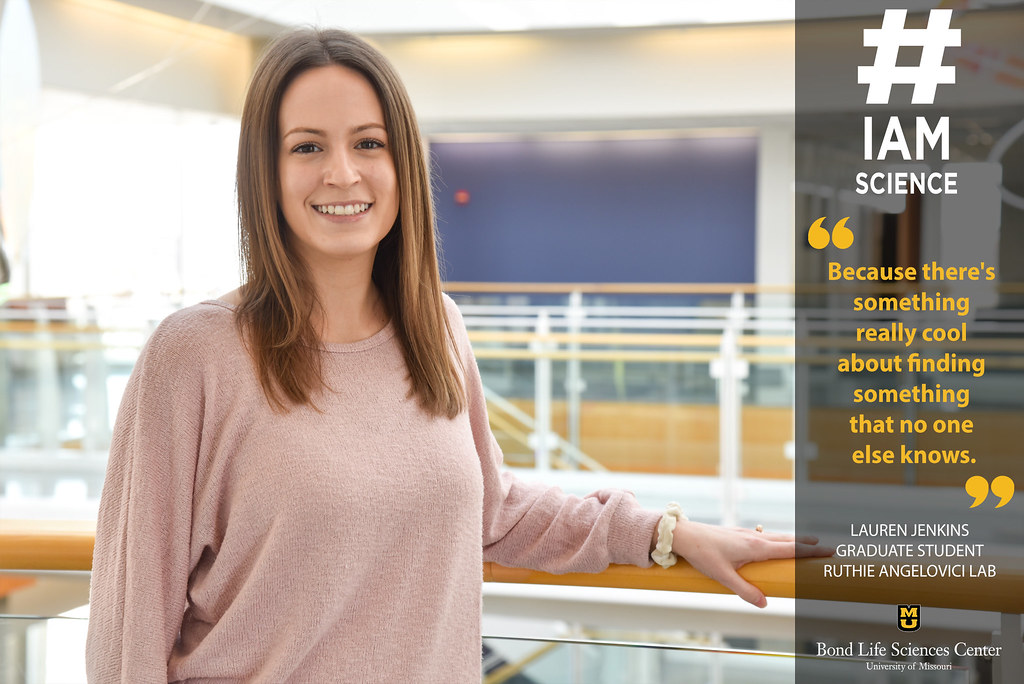Published on
By Becca Wolf | Bond LSC
As someone interested in getting a Ph.D., you apply to several schools and programs hoping to get in.
When Lauren Jenkins first interviewed with Mizzou, she knew it was the one. But the interview was not the first time she’s had a good impression with the school.
As an undergraduate student at the University of Missouri-St. Louis, Jenkins’ first science conference was the Interdisciplinary Plant Group (IPG) Seminar at the Bond Life Sciences Center.
“I actually had the opportunity to give a talk there,” Jenkins said. “I just remember being an undergrad and I was so intimidated, but it actually turned out really well. I had some cool conversations there and no one made me feel unimportant, people were really interested in it.”
Now a Ph.D. student in the Ruthie Angelovici lab, Jenkins got started in January and has hit the ground running.
“I’m very impressed with her ability to interpret the biology and how quickly she’s getting the hang of things and contributing creative ideas,” Angelovici said. “It can be a bit overwhelming, so I really appreciate how well she’s integrated in and I think she’s bringing a lot of analytical perspective that is very needed in the lab.”
Jenkins works on several projects in the lab.
Her main two focuses look at changes in the protein metabolism in maize under drought conditions to see how the proteins balance themselves after a large change.
In addition, she engages in research approaches that will lead to identification of high priority candidate genes in maize and Arabidopsis, that can potentially change protein quality in seeds.
“Plants are awesome for that because every plant has its own metabolism going on,” Jenkins said. “There are endless possibilities to what you can research in that regard.”
Plant metabolism is important because it comprises pathways that are essential to plant growth, regulation and has a large impact on the development and survival of the plant.
“It is really cool,” Jenkins said. “I’ve never been involved in big genetics projects and to see how those can be fruitful is really cool. I’ll also get to do some really cool molecular work on them that I also haven’t done before, and it will be fun to take those forward.”
Jenkins’ previous experience comes from the Donald Danforth Plant Science Center in St. Louis, where she was an intern.
“My work at the internship really gave me a lot of skills,” Jenkins said. “I worked with some mass spectrometry while I was there, which is some of the skill sets that we use in the lab here. One big thing for me is that I already know how to do this and it’s good because they both look into metabolism.”
This experience helped her jump right in to the Angelovici lab.
“She brings a fresh perspective,” Angelovici said. “She has a lot of background in analytics and now she’s learning to integrate her analytic skills with the system biology that we are doing. It’s very early days for her, but she’s showing a lot of promise.”
Two months in and Jenkins is happy with her choice to come to Bond LSC.
“The plant science community is super great,” Jenkins said. “It’s kind of close knit and I really enjoy the interactions that I get. Even big-name PIs are really personable and love talking about their science with you, which is really nice.”
